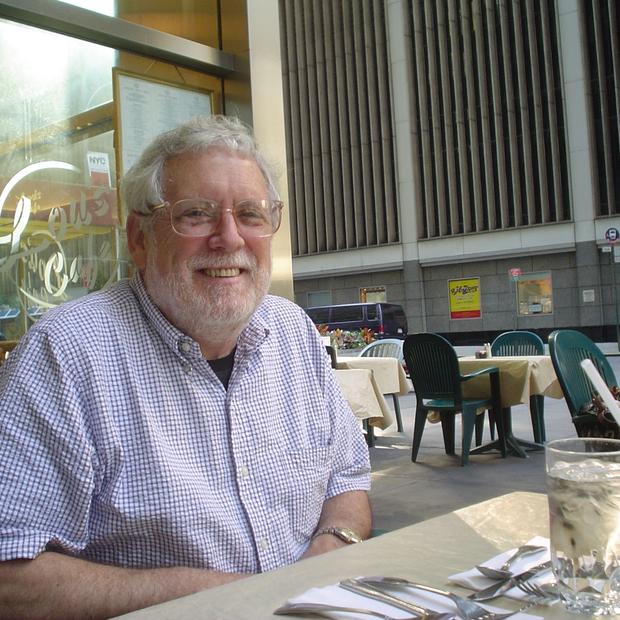What's the most internationally connected city in the region? First answer is Seattle, of course. But Bellevue is rapidly becoming an international city, especially when it comes to economic city-to-city relationships.
In September 2008, then-Bellevue Mayor Grant Degginger was on a trade mission to China, sponsored by the Trade Development Alliance of Greater Seattle. The trip stopped in Dalian, a city of 7 million in northeast China, where Degginger and the city of Bellevue signed a cooperative agreement at a formal dinner. A huge red banner hung above the banquet room proclaiming the "Signing Ceremony of the Agreement of Economic and Trade Cooperation between the City of Dalian and the City of Bellevue."
The red-bannered meeting was the result of months of effort by Bellevue Councilmember Conrad Lee (now deputy mayor) and others that led to this somewhat different relationship between the cities. "It is not a traditional sister-city relationship," said Degginger, who continues to serve on the city council after a term as the member designated as mayor, "but one that will work on our mutual interests." This was a case where the two cities wanted to exploit their similarities in business and culture.
Similarities? Bellevue obviously has a strong presence in software, computer games, and other high-tech businesses. Dalian has become one of China's software centers with strengths in computer graphics and computer games. So it's a very natural fit with Microsoft and Nintendo of America on the Eastside.
Bellevue is also much more diverse a community than many may realize. City officials said about 40 percent of Bellevue's population is foreign born and more than a third is Asian. More than 30 percent of those over age 5 speak a language other than English at home.
Now Bellevue has signed its second economic agreement with a city in China — this time with Qingdao, one of the best-known cities in China because of the Chinese beer (spelled Tsingtao) that is brewed there. Lee, Bellevue's deputy mayor this year, signed the agreement with the city in May.
"We are combining our strengths," said Lee. "We have the technology here and we have the Asian population. It makes it all work well together."
Bill Stafford, president of the Trade Development Alliance, said Bellevue also has a natural fit with India, given the large Indian population in the city.
The Bellevue strategy is to cooperate on technology and business connections, and use those connections to "establish direct and effective contact to promote mutual economic development and trade," according to the cooperative agreement with Qingdao.
Trade agreements are one thing, getting them to work is quite another, especially in the midst of a global economic turndown. Lee admits there has been no direct benefit as yet from the agreement with Dalian in the two years it has been in effect.
But Bellevue Director of Economic Development Robert Derrick says the strategy still works, capitalizing on Bellevue's growing foreign (mostly Asian) population. He said the city is getting a reputation for being able "to make things happen" because of its foreign connections. There are some natural connections. Dalian, a former Russian and Japanese protectorate, has strong links with Japan and is a center of China's fashion industry. Qingdao is a former German protectorate and is known for its technology and telecommunications industries.
Derrick said Qingdao has many of China's top international companies such as Haier, which makes appliances (you can see them at Home Depot, Lowes, and other U.S. stores) and CSR Qingdao Sifang, a leader in the production of high-speed trains. Derrick said one of the goals of the program is to get companies, especially those in high tech, to locate offices in Bellevue and fill up the new office buildings there.
"Traditional economic development is land use, getting the land ready and then letting the market take care of it," Derrick said. These days it is more about developing relationships to get business interested in Bellevue. "Our goal is filling space with successful businesses and organizations," he said.
Bellevue does have traditional sister-city relationships with four cities, some of them 40 years old. But the city stopped engaging in new sister-city programs, instead focusing on the economic and trade strategy. Seattle has more than 20 sister-city relationships, such as with Chongqing. Like most sister-city relationships, Seattle'ês contact with Chongqing has mostly been cultural, such as the Chinese garden at South Seattle Community College.
India is likely to establish a consulate in Bellevue. Most of the paper work is completed, said Lee, awaiting only a formal okay from the U.S. State Department. Bellevue is now often the site of meetings with visiting delegations — the Washington State India Trade Relations Action Committee in mid-June hosted a business conference with a delegation from the state of Orissa, India, and a number of regional organizations at the Bellevue City Hall. The president of Microsoft India lives in Bellevue.
"A large of part of a solid economic development program is about building relationships," said Lee. Thomas Boydell, manager of the Belleuve's Economic Development office, told a story about an economic development official from China who was interested in U.S. coal mines. Bellevue helped the Chinese official get in contact with a company in Kent that actually owned mines in China.
"That's Bellevue acting as a regional resource in international economic development," Boydell said. Stafford of the Trade Development Alliance said a regional view is a good move for Bellevue. "International trade is regional by its nature," he said. "If you go to Crossroads on a weekend, it is like a United Nations meeting."


